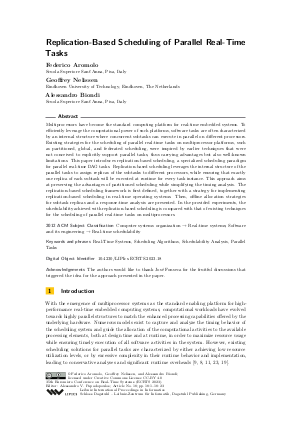LIPIcs.ECRTS.2023.18.pdf
- Filesize: 0.81 MB
- 23 pages

 Creative Commons Attribution 4.0 International license
Creative Commons Attribution 4.0 International license































Feedback for Dagstuhl Publishing